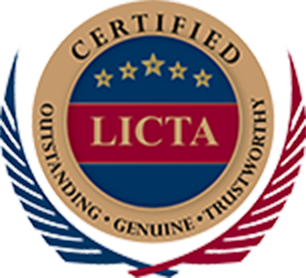Introduction
Under the Malaysia Types of Trust framework, trusts play a key role in managing assets and protecting family wealth. A trust allows a settlor to transfer assets to a trustee, who manages them for beneficiaries based on clear legal terms.
This article explains the main types of trusts recognized in Malaysia and their practical purposes under the Income Tax Act 1967 and common law principles.
1️⃣ Express Trust
An express trust is intentionally created by a settlor through a written trust deed. It clearly specifies:
- The property or assets transferred to the trust.
- The beneficiaries entitled to benefit.
- The trustee’s duties and powers, such as:
- Managing investments.
- Appointing new trustees.
- Varying beneficiary interests.
Examples: Bare trust, discretionary trust, fixed (non-discretionary) trust, and charitable trust.
2️⃣ Bare Trust
A bare trust holds assets in the trustee’s name for a specific beneficiary, usually a minor.
The trustee does not have discretion — once the beneficiary reaches the agreed age, the assets are transferred to them.
Example: A father sets up a trust for his child to receive property at age 21.
3️⃣ Discretionary Trust
In a discretionary trust, trustees have the authority to decide:
- Which beneficiaries receive income or capital.
- How much they receive.
- When payments are made.
The trust deed defines the trustee’s discretion and conditions. This trust is often used for family wealth planning, allowing flexibility in changing circumstances.
4️⃣ Fixed (Non-Discretionary) Trust
A fixed trust specifies each beneficiary’s entitlement or percentage share.
The trustee has no discretion — they must distribute income or capital strictly as the settlor’s deed instructs.
Example: Each child receives 25% of annual income from rental property.
5️⃣ Trust for Accumulation
A trust for accumulation allows trustees to retain and reinvest part or all of the income instead of distributing it immediately.
This helps grow the trust fund over time.
Trustees may also choose to pay out income when appropriate, similar to a discretionary trust.
6️⃣ Mixed Trust
A mixed trust combines discretionary and fixed elements.
Part of the income is distributed at the trustee’s discretion, while another part is fixed by the deed.
This allows flexibility while maintaining structure in how income is shared among beneficiaries.
7️⃣ Charitable Trust
A charitable trust is established for public benefit purposes, including:
- Promoting education.
- Relieving poverty.
- Advancing religion.
- Benefiting the community.
Unlike private trusts, charitable trusts serve a purpose rather than specific individuals.
8️⃣ Testamentary Trust
A testamentary trust is created under a will and takes effect upon the testator’s death.
It is commonly used to:
- Provide for minor or disabled children.
- Manage estate distribution in stages.
This ensures long-term protection and responsible asset management after death.
Legal Framework in Malaysia
All trusts in Malaysia are governed under:
- Trustee Act 1949, and
- Sections 61–67 of the Income Tax Act 1967.
These laws regulate how trusts are created, administered, and taxed, ensuring transparency and fairness for beneficiaries.
Key Takeaways
- There are various types of trust under Malaysian law, each serving different purposes.
- Common types include discretionary, fixed, charitable, and testamentary trusts.
- Each trust type defines how income, capital, and control are managed.
- The Trustee Act 1949 and Income Tax Act 1967 govern trust creation and compliance.
ANC Group – Your Personal Tax Advisor
Tax consulting is the core service of ANC Group. Our tax professionals provide clients with comprehensive tax support and guidance. We offer tax consulting and compliance services for expatriates, entrepreneurs, and listed and non-listed companies.
Our tax consulting services include business tax, transaction tax, personal tax, and corporate income tax. We don’t just guide you in interpreting and applying complicated taxation rules, but to explore new opportunities and business trends.
ANC Group keep you abreast with Malaysia tax updates and any changes in the local regulations.
We work closely with industry specialists, authorities, and associated professionals within ANC Group to provide the best-in-class integrated tax planning solutions. ANC specialists coordinate the accounting and taxation services to bring your business to success.
If you need professional tax advisory services regarding the Malaysia Income Tax Act 1967, our team is ready to assist you. Contact us here to discuss how we can support your business.









